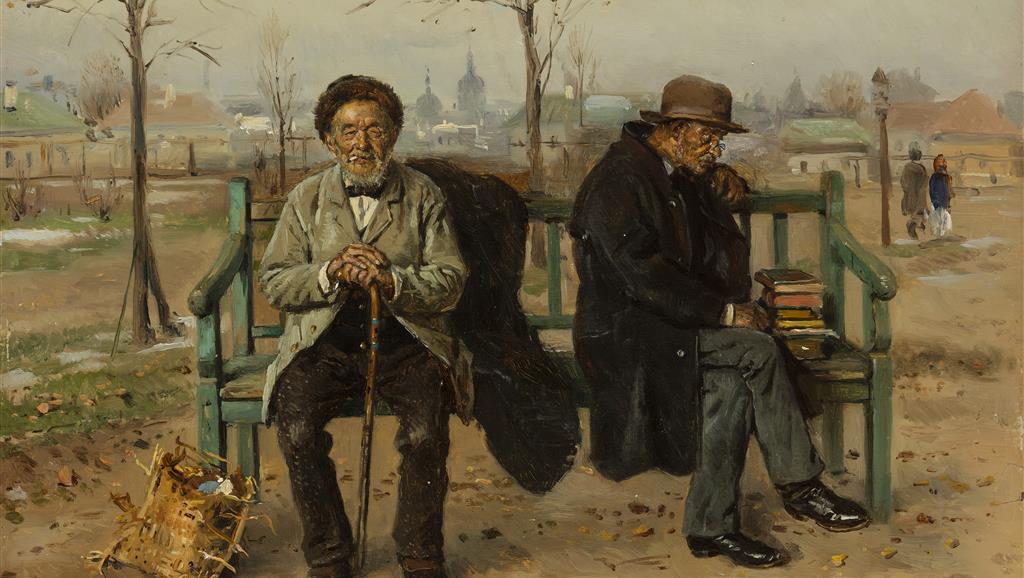Image: An Optimist and a Pessimist, Vladimir Makovsky, 1893
The word “pessimism” is defined by Merriam-Webster as “an inclination to …expect the worst possible outcome,” and as “the doctrine that reality is essentially evil.” You can really see from these definitions how dark of a worldview pessimism is. Not only is it a gloomy way of seeing things, pessimism is also incredibly prevalent, and throughout my life I’ve been around people who were entirely caught up in this mentality. Perhaps, when you think about it, it isn’t that shocking. With all the bad things going on in the world, with all the fires and murders and disasters and wars and destruction—not to mention the technology keeping us constantly aware of these things—it’s not surprising that people may feel like the world is coming to an end.
There’s one important thing I’d like to clarify—when I say pessimism, I’m not talking about occasional pessimism. Everyone feels down on themselves every so often, including me. Everyone has hopeless moments, sad moments. Everyone grieves. I’m not talking about depression—that’s an entirely different thing. I’m talking about a pessimistic worldview, the type that is often conflated with cynicism. That is what I don’t like and what I feel isn’t beneficial if you want to live a good life.
Now, it’s not incorrect that the world and the human race have serious problems. It’s not incorrect that wars are happening, people are dying, cities are burning. It’s not incorrect that every day, people across the globe go through immense pain and suffering. But the issue with pessimism is that it compels you to keep that suffering on your mind, until it begins to bog you down, to push you into the world’s darkness, to make you disillusioned with reality and humanity.
In the end, it’s good to realize that the problems of others are not the primary concern in your life. It may sound insensitive to say that. It may sound like I’m saying that you should not care at all about the undeniable suffering in the world, but I’m not saying that. It’s good to think about that, ponder it to some extent, and think of some solutions and try to enact them, but not to the point that it overtakes you—which is the point to which constant pessimism drives you. I think the best approach to lead a good life is to focus on the problems faced by you and your loved ones, and to work to fix them. The main tenet of a pessimistic worldview is actually true—it’s rough all over—but if you focus on yourself and people immediately around you who you care about, then maybe you can find solutions.
I think it’s naive and immature to think that the world is all sunshine and rainbows and that everything will be perfect forever. It’s impossible to think that, especially with what’s happening and what has happened in the world. But I think that it’s equally immature to think that the world is bleak and dead and that everyone and everything is terrible forever. I think the world is equal parts horrible and wonderful; equal parts a place of great joy and great sadness, of creation and devastation. Rose-tinted glasses tip the scale of that balance one way, and cynicism tips it the other. But when you shed either extreme worldview, you will find yourself a much happier person.
Arjun Mathur is a sophomore at Washington High School. He was born and raised in Fremont. This is his second year on the Hatchet, and this year, he’s one of the Features editors. He is the publicity director of Washington Speech and Debate, the secretary of Photography Club, and a member of the track and field team. Outside of school, Arjun enjoys writing, listening to music, photography, biking, and discovering more about the city he lives in. He is the founder of the Mission Peak Lookout, an online, student-run newspaper for Fremont. In the future, Arjun aspires to attend UC Berkeley, but he’s not sure about what he’ll major in yet.


